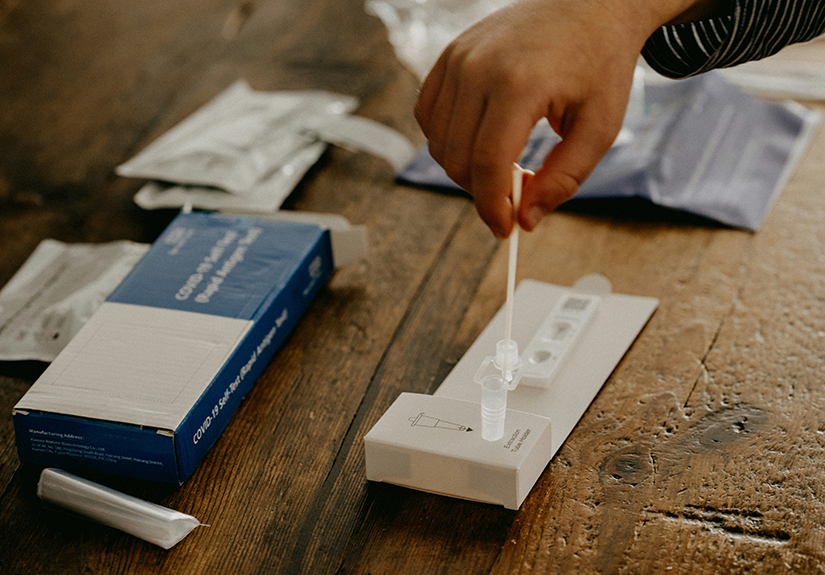Ethical dilemmas in COVID-19 testing
CPH authors make case for research on pandemic response equity
By Kristen Mitchell

The U.S. public health response to COVID-19 has focused on increasing availability and access to COVID tests. But putting the testing burden on individuals creates ethical dilemmas that exacerbate health disparities and undermine trust in public health interventions, argue Ohio State researchers in a new Frontiers in Public Health paper.
Written by CPH faculty Abigail Norris Turner, Julianna Nemeth and Tasleem Padamsee, and The Ohio State University Center for Bioethics’ Dana Howard, the paper cites three major challenges: lack of testing uptake, diminished public health effect of testing and loss of access to necessary social goods and supports. These challenges affect people and communities differently because of structural inequities, the authors write.
“A resident of an economically affluent neighborhood, for instance, may experience the lack of local test kit availability during a COVID-19 surge as a challenge that requires work arounds, such as ordering a test online and working remotely until it arrives. A resident of an economically disadvantaged neighborhood two miles away, however, may lack funds to order a test, a secure place to have it delivered, and the ability to work remotely,” the authors write.
“What is a logistical challenge for the first individual may be a complex ethical challenge for the second: does the risk of potentially exposing co-workers toSARS-CoV-2 transmission outweigh the risk of losing one’s job and the ability to pay rent for my family?”
The moral dilemmas people face surrounding COVID-19 testing has not been thoroughly researched. Public health research in this area will facilitate the development of approaches that empower people to make testing decisions that serve their interests and the interests of their broader communities, the authors write.
About The Ohio State University College of Public Health
The Ohio State University College of Public Health is a leader in educating students, creating new knowledge through research, and improving the livelihoods and well-being of people in Ohio and beyond. The College's divisions include biostatistics, environmental health sciences, epidemiology, health behavior and health promotion, and health services management and policy. It is ranked 22nd among all colleges and programs of public health in the nation, and first in Ohio, by U.S. News and World Report. Its specialty programs are also considered among the best in the country. The MHA program is ranked 5th and the health policy and management specialty is ranked 21st.